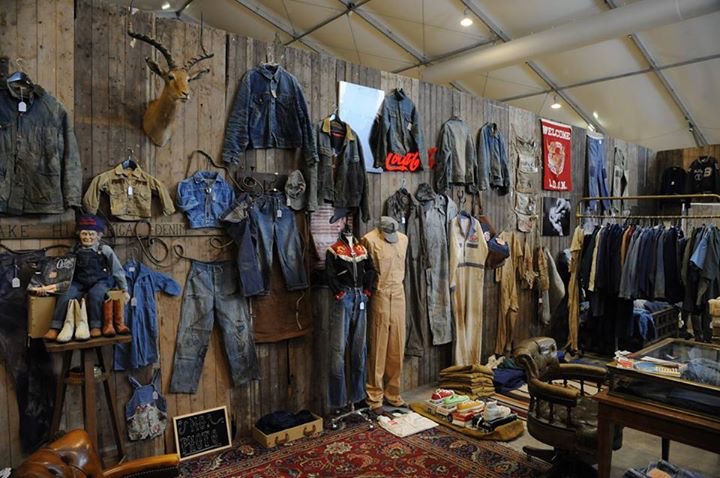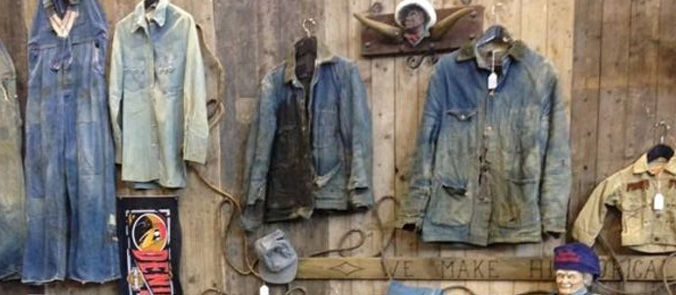Sustainable denims grow more important
Denim Première Vision’s return to Paris was saluted by different opinions, though, despite these controversies, registered good results. Although the relocated show took place in the same days of Kingpins New York and exactly one week after Kingpins Amsterdam, Denim PV was well attended and many of its exhibitors were satisfied with the move back to Paris as the city is always appreciated as highly inspiring for its creative environment, shops and venues: "In Paris you can always use 100% of your time," Hamit Yenici of Calik says. Thomas Dislich of Vicunha was overall satisfied: "We were busy all day long. Many people complain already before an event has happened. Instead, they should better wait and see how it goes. And for us it went all well."
Other insiders indeed complained about the tight calendar of fabric shows. "It would be better to have at least two or three weeks time between the events because that would give us the chance to show some new material in Paris," was the comment of several exhibitors. “We are obliged to participate at both, Denim Première Vision and Kingpins Amsterdam, as they are visited by different insiders, companies and brands, but we have to pay double costs, while we can simply present the same exact collection twice after a few days," was another statement that was overheard many times.
It seems unlikely that this time clash will be avoided since the upcoming edition will take place April 26-27, again a week after Amsterdam Denim Days will happen April 13-21 and Kingpins very probably, April 18-19.
Apart from the controversial aspect of timing, Denim Première Vision took the opportunity to start some new features such as the Premium Vintage Market, where selected vintage pieces could be bought, and the Share & Shake sessions-expert talks organized together with and moderated by SPORTSWEAR INTERNATIONAL(find out more about that in the following reports on this website). Both initiatives were successful and highly appreciated as they recalled great attention from visitors and audience.

On the product side the show presented quite some interesting novelties for s/s 2018. Two of them were introduced by Kassim Denim: they launched the first indigo fabric made with a 3-D printer. It is made with TRT, a polyester resin. This specific material is made with made out of recycled plastic material, it is biodegradable, highly flexible and breathable. It can be used for five-pocket jeans while it can also be aged and treated as regular indigo denim. They also launched a special microchip that can be attached to jeans and can trace position, body movement, body temperature, humidity, medical information and many other information of its wearer thanks to a smartphone app.
Many weavers continue to develop new employs of technical fibers and innovative material mixes. Prosperity, for instance, has developed a functional denim also presented during the last edition of Ispo Textrends section. This denim incorporates also Amicor, special fibers with antimicrobic properties that help keep the garment clean for 2-3 monthswithout washing. They also developed a new denim that incorporates Air-Lite, a hollow fiber that guarantees to obtain 10% lighter denims that are also stretch and with a softer touch.
Vicunha has developed special denim that incorporate Dryarn fibers for 30% lighter denims with cooling properties.
Another innovation developed by Prosperity was a collaboration with Creora Fit2, a new four way stretch that gives more elasticity in the warp (40-50%) and less in the weft (22%) with great stretch recovery.
Calik developed its new Fix-Fit soft touch denims available in very light weight denims for both men and women. Their other Hyperlight superlight and highly stretch denims weigh only 10oz and can reach up to 70% elasticity.
US Denim offered their new MaxFlex stretch denim that guarantees 100% stretchability, less than 3.5% growth and one size less to wearers of jeans made with it.
Sustainable denims grow more important
Bossa has developed a series of new denims including its Dye-Art process that aims to reduce the 22liters of water per meter of dyed fabric. Thanks to this technique they can also save dyeing substance therefore also lower their environmental impact. Bossa also aims to increase the employ of BCI cotton in their production for years to come. Until now they employ 35% BCI cotton for all of their fabrics and by 2017 they want to increase the figure to 60%. Final aim of their operation is to reach the employ of BCI cotton to 90% of the total cotton they use plus, for the remaining 10%, employ organic cotton.
Jeanologia has presented Light Sensitive Fabric, a new study which analyzes how a denim fabric reacts to new sustainable processes, mainly laser treatment, in order to get the washes and desiredlook while reducing the water, chemical and energy consumption. This way jeans companies can avoid more harmful processes such as handscraping or potassium permanganate spraying.
US Denim has developed a demnim employing a new biodegradable synthetic fiber that decomposes completely in two years differently from other similar fiber that need 100 years to decompose totally.
The ‘70s continue to be highly appealing. Many pieces presented at the show’s trend areas and by various exhibitors focused on sun burnt blues, looser construction denim and lightweight soft touch materials. Tavex launched its new T-Flow denim, a highly stretch loose construction denim meant for soft and loose items. Calik developed a series of interesting degradé denim effect – both by treating fabrics but also by developing new jacquard degradé effects. Garment manufacturers Denim Clothing Company, E-Jeans and Baykanlar developed different fancy effects.

Kurabo bets on Japanese innovation
Kurabo denim has launched its first official label “Kurabo Denim Prime Blue”, a special logo and woven label to be applied to jeans according to special collaborations with premium denim brands. The label aims to emphasize how Kurabo was one of the first companies to manufacture denim in Japan since 1970 and set the beginning of a new era for Japanese denim.
News from the label world
During Denim PV Turkish, long time expert label manufacturer Deridesen has presented a complete new collection of labels by Glenda Goldschmied, daughter of the renowned expert and longtime insider Adriano Goldschmied. The special Deridesen by Glenda Goldschmied capsule collection conveys Glenda’s highly creative vision and consists of 50 individual labels incorporating typography, graphics and organic materials.








11/07/2016